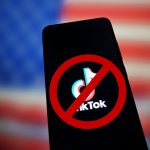The California Supreme Court today shot down the lawsuit filed by a group of rideshare drivers in California and the Service Employees International Union that alleged Proposition 22 violates the state’s constitution.
“We are disappointed in the Supreme Court’s decision not to hear our case, but make no mistake: we are not deterred in our fight to win a livable wage and basic rights,” Hector Castellanos, a plaintiff in the case, said in a statement. “We will consider every option available to protect California workers from attempts by companies like Uber and Lyft to subvert our democracy and attack our rights in order to improve their bottom lines.”
The suit argued Prop 22 makes it harder for the state’s legislature to create and enforce a workers’ compensation system for gig workers. It also argues Prop 22 violates the rule that limits ballot measures to a single issue, as well as unconstitutionally defines what would count as an amendment to the measure. As it stands today, Prop 22 requires a seven-eighths legislative supermajority in order to amend the measure.
“We’re thankful, but not surprised, that the California Supreme Court has rejected this meritless lawsuit,” Jim Pyatt, a rideshare driver who advocated for Prop 22 and worked with the Yes on 22 campaign, said in a statement. “We’re hopeful this will send a strong signal to special interests to stop trying to undermine the will of voters who overwhelmingly stood with drivers to pass Proposition 22. The ballot measure was supported by nearly 60 percent of California voters across the political spectrum including hundreds of thousands of app-based drivers. It’s time to respect the vast majority of California voters as well as the drivers most impacted by Prop 22.”
How to contact TechCrunch
Got a tip? Contact us securely using SecureDrop. Find out more here. You can also reach this author via Signal at 415-516-5243
Meanwhile, Uber, Lyft and other companies have said they have their eyes on pursuing Prop 22-like legislation elsewhere. Given Uber and Lyft’s anti-gig-workers-as-employees stance, it came as no surprise when Uber and Lyft separately said they would pursue similar legislation in other parts of the country and the world.
Lyft, for example, has created external organizations that push for the independent contractor classification. Two of those organizations are Illinoisans for Independent Work and New Yorkers for Independent Work. Illinoisans for Independent Work was established in June and funded by Lyft with $1.2 million, according to committee filings. The stated purpose of the committee is “to support candidates who share the ideology of our organization and the value of independent work.”
But as we’ve previously discussed, the implementation of Prop 22 doesn’t mark the end of the battle for some gig workers to achieve employee status. There is a concerted effort to keep organizing this year, and getting ready to fight back wherever the next legislative battle emerges.
Powered by WPeMatico






